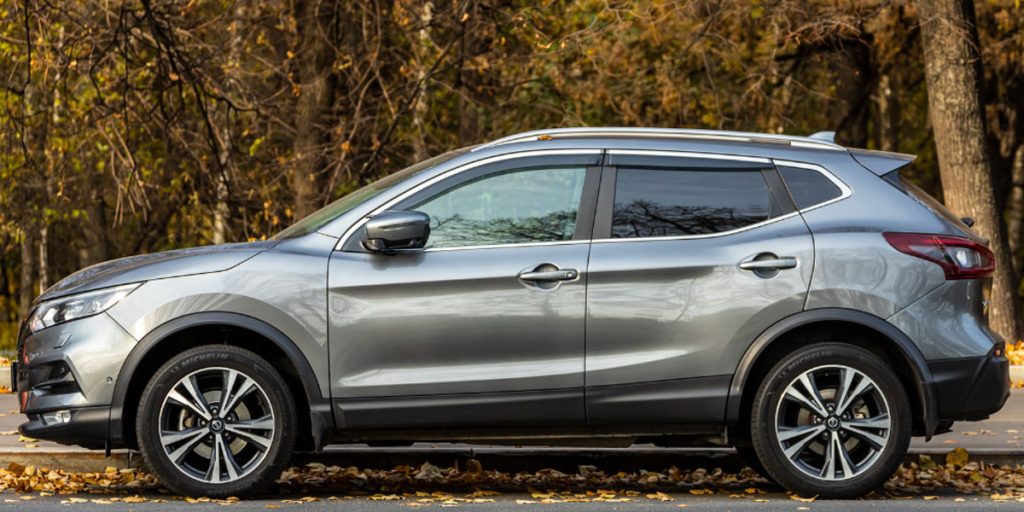A Nissan Titan’s weight can range from about 5,590 to 7,300 pounds, depending on the model and configuration.
Truck enthusiasts and potential buyers often inquire about the curb weight of the Nissan Titan, as it influences handling, fuel efficiency, and towing capabilities.
The Titan stands out in the full-size pickup market, boasting robust performance and a reputation for reliability.
Offering various trim levels, including the PRO-4X for off-road adventures and the luxurious Platinum Reserve, the Titan caters to a wide range of preferences.
Understanding the weight is essential for drivers who prioritize certain vehicle attributes or face restrictions in terms of towing and payload.
With its competitive weight class, the Titan remains a strong contender against other full-size trucks, providing a balanced blend of power and functionality for everyday use and work-related tasks.
Nissan Titan: A Glimpse At The Giant
The Nissan Titan stands tall among full-sized pickups. It’s a symbol of strength and reliability. Drivers prize its rugged capabilities and powerful presence on the road.
Let’s dive into the origins and impressive particulars of this automotive titan.
Birth Of The Titan
Launched in 2003, the Nissan Titan introduced a new era of V8-powered exploits. Designed with American streets in mind, it rolled out as Nissan’s first full-size pickup.
Advanced engineering and a vision for grandeur set the stage for the Titan’s journey.
Vital Stats Of Nissan’s Full-sized Pickup
Weight forms a pivotal part of the Titan’s character. Different trims and configurations affect its mass. Here are key details:
- Base models start light.
- Heavier trims pack on features, adding pounds.
- Towing capabilities highlight its muscle.
| Year | Model | Curb Weight |
|---|---|---|
| 2020 | Titan S | 5,590 lbs |
| 2020 | Titan SL | 5,912 lbs |
| 2020 | Titan Platinum Reserve | 5,986 lbs |
Note: Exact numbers vary by specific configurations and optional equipment.
Breaking Down The Titan’s Weight Class

Understanding the weight of a Nissan Titan is crucial for owners and prospective buyers.
This pickup’s weight affects many aspects, including payload capacity and fuel efficiency.
Let’s delve into the varying weights across different Titan models and configurations.
Comparing Trim And Model Variations
The Nissan Titan comes in various trims and models, each with its unique weight:
- King Cab S: Starts at around 5,500 lbs
- Crew Cab SL: Can weigh up to 5,850 lbs
- PRO-4X: Often tips the scales at roughly 5,680 lbs
Each model is designed for specific needs and reflects diverse weight ranges.
A table summarizing these can be handy for quick comparisons:
| Model | Starting Weight |
|---|---|
| King Cab S | ~5,500 lbs |
| Crew Cab SL | ~5,850 lbs |
| PRO-4X | ~5,680 lbs |
The Impact Of Add-ons And Configurations
Optional add-ons and configurations can influence the Titan’s weight significantly:
- 4×4 Drivetrain: Adds approximately 200 to 400 lbs
- Towing Package: Minor weight increase but critical for capability
- Utility and Audio Packages: Can add an extra 100 lbs or more
When customizing a Titan, remember these extras will add weight and possibly affect handling.
The Scale Doesn’t Lie: Weighing The Titan

When it comes to trucks, every pound matters. The Nissan Titan stands out as a full-size pickup that promises strength and agility.
Understanding its weight is crucial for towing, performance, and efficiency. Let’s put the Nissan Titan on the scales and see how it measures up.
From Factory Floor To Curb: Getting The Numbers
Vehicles roll off the assembly line in various trims and configurations. The Nissan Titan is no exception. Its weight can be quite surprising.
This is what’s known as curb weight, the weight of the vehicle with all standard equipment, a full tank of fuel, but without passengers or additional cargo.
| Model | Curb Weight (Approx.) |
|---|---|
| Titan S | 5,590 lbs |
| Titan SV | 5,680 lbs |
| Titan PRO-4X | 5,794 lbs |
| Titan Platinum Reserve | 5,913 lbs |
How Optional Equipment Tips The Scale?
Optional features and packages can noticeably affect a truck’s weight. Extra gear and amenities, such as larger wheels, off-road equipment, or luxury features, add pounds. Here’s how the Titan bulks up with popular add-ons:
- Towing Package: +130 lbs
- 4WD Upgrade: +200 lbs
- Utility Package: +250 lbs
Customizations not only add personality to your truck but also extra weight. It’s a balance between functionality and the scales. Wise choices ensure your Titan performs at its best.
Weight’s Impact On Performance
The heft of a Nissan Titan does more than take up space on the road. It plays a crucial role in how this robust pickup performs daily tasks.
A Titan’s weight affects several aspects of its capabilities. Understanding these will help drivers make more informed decisions.
Let’s explore how the Titan’s size influences its performance, especially regarding fuel efficiency and hauling abilities.
Fuel Economy And The Weight Factor
A vehicle’s weight directly correlates with its fuel consumption. The heavier the Titan, the more power it needs to move.
Heavier loads lead to more fuel being burned per mile. To put it simply:
-
- More weight means greater energy expenditure.
- Greater energy expenditure leads to lower fuel economy.
Owners should note that the Titan’s trims have different weights. The Titan S Single Cab, for example, will consume less fuel.
This is due to its lower curb weight compared to the Titan Platinum Reserve Crew Cab.
Towing Capabilities And Payload Limitations
The Titan’s weight also determines how much it can haul. The rule is straightforward:
-
-
- Higher towing capacity comes with a sturdier frame and more weight.
- Ensure the truck’s weight does not exceed its designated payload limit.
-
The Titan’s models offer different towing capacities and payload limits. They require careful examination. A heavier Titan model can tow more.
But it can also mean sacrificing payload space for tow weight. For handling both payloads and towing, knowing the truck’s Gross Vehicle Weight Rating (GVWR) becomes vital.
This ensures safety and optimal performance.
Beyond The Scale: Ownership Implications
When considering the purchase of a Nissan Titan, its weight is more than just a number. It influences ongoing ownership factors.
From insurance costs to potential resale value, understanding these implications is crucial for an informed decision.
Let’s explore how the Titan’s heft impacts more than just the fuel efficiency.
Insurance And Registration Fees
The weight of a Nissan Titan affects insurance and registration fees. Heavier vehicles often lead to higher premiums due to the potential for greater damage in collisions.
In some states, registration fees are also based on vehicle weight, meaning a Titan could cost more annually compared to lighter trucks.
- Higher insurance premiums due to increased damage potential
- Weight-based registration costs could result in more expensive fees
Resale Value And Market Perception
The resale value of a Nissan Titan is also influenced by its weight. A well-maintained and efficient heavy-duty truck can hold its value better in specific markets.
Yet, consumer trends towards smaller, more fuel-efficient vehicles can impact resale negatively.
The Titan’s market perception as a durable and capable vehicle might counterbalance this effect.
| Factors | Impact on Resale Value |
|---|---|
| Maintenance | Well-maintained heavy vehicles maintain value |
| Fuel Efficiency | Poor efficiency can decrease value |
| Market Trends | Trends towards smaller vehicles can affect value |
| Truck Capability | Perceived durability can increase value |
FAQ About the Weight of a Nissan Titan
What Is The Curb Weight Of A Nissan Titan?
The curb weight of a Nissan Titan can vary depending on the model year and trim.
Generally, the weight ranges from approximately 5,500 to 7,300 pounds. Specific trim levels and added features may affect the overall weight.
Can The Nissan Titan’s Weight Affect Its Performance?
Yes, the weight of a Nissan Titan affects its performance.
Heavier models typically have less acceleration but may provide better traction.
The weight also influences fuel efficiency, braking distance, and towing capabilities.
How Does Nissan Titan’s Weight Compare To Competitors?
Compared to its competitors, the Nissan Titan’s weight is competitive.
It is similar to trucks like the Ford F-150 or Chevrolet Silverado, which have comparable curb weights ranging from 4,500 to over 5,300 pounds, depending on the configuration and model.
Does The Nissan Titan’s Weight Impact Towing Capacity?
The weight of the Nissan Titan does impact its towing capacity. A sturdier, heavier Titan often boasts a higher towing capacity, with some models capable of towing up to 9,400 pounds. Lighter variations may have slightly lower towing capabilities.
Conclusion
Understanding the weight of your Nissan Titan is crucial for various reasons, from towing capacity to fuel efficiency. This truck’s heft varies by model and specifications.
We’ve explored the different factors affecting its weight. When considering a Titan, remember these insights to make an informed choice suited to your needs.
Safe driving and happy hauling!
Resources:
https://www.nissanusa.com/vehicles/trucks/titan/features.html
https://www.nhtsa.gov/vehicle/2022/NISSAN/TITAN
